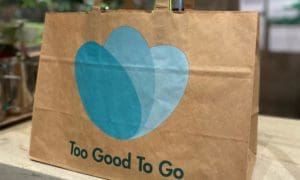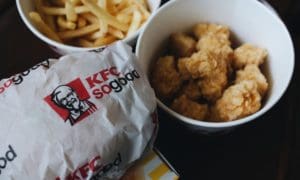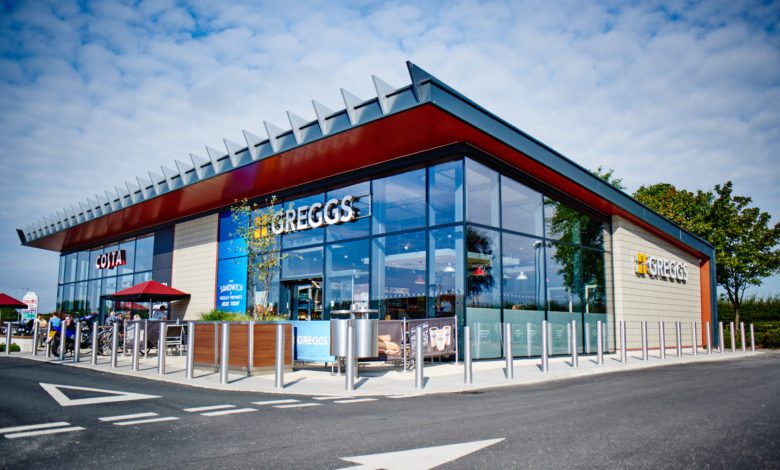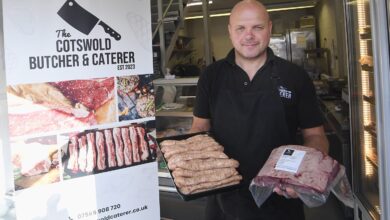It has been a rough year for the hospitality industry. According to the CCA’s ‘Market Recovery Monitor’ for 2020, almost 10,000 licensed premises – including pubs, clubs and restaurants – closed permanently as a result of its impact and the continuous wave of lockdowns. This represents a net decline of 5,975 sites and an increase of 175% in terms of site closures from 2019.
Until such a time when establishments can reopen safely, cafes and restaurants – both independent and chain – have adapted to the ‘Deliveroo’ era and shifted operations online. Greggs, Costa Coffee, and KFC are the UK’s top three casual dining/fast food brands in terms of popularity, according to research from YouGov.
Here is a breakdown of how each of the fast food chains survived, and occasionally even thrived, during the Covid-19 pandemic.
Greggs
Despite the nationwide lockdown, it turns out Brits still needed their sausage roll fix. The country’s leading food-to-go chain saw total sales of £811m last year. Greggs’ fourth quarter like-for-like sales averaged 81.1% of the equivalent 2019 level, a modest drop compared to its peers.
Delivery sales made up 5.5% of the company’s overall sales over this period, with Greggs’ having developed its partnership with Just Eat earlier in the year. The chain closed 56 sites during the pandemic, but also opened 84 news shops, bringing its total estate to 2,078 shops as of 2 January, 2021.
Speaking on the company’s performance, Greggs’ chief executive Roger Whiteside said: “With customers spending more time at home we have successfully developed our partnership with Just Eat to offer delivery services and have also seen strong sales through our longstanding partnership with Iceland, offering our products for home baking.
“We have resumed opening new shops where we see good opportunities, with those sites accessed by car performing particularly well.”
Costa Coffee


Having just celebrated its two year anniversary of being part of the Coca-Cola Company, Costa Coffee is an example of a brand which diversified its portfolio in order to survive these trying times. In its third quarter financial report, the cafe chain’s parent company saw net and organic revenues decline by 8% and 6% globally, respectively.
Over this period, 95% of Costa stores remained open in the UK thanks to drive-through and delivery options. The chain’s ‘First One on Us’ campaign encouraged consumers to buy a coffee, leading to over 1m new users on the Costa app.
Costa Express Machines also increased brand awareness, with MSD growth increasing in like-for-like sales compared to the previous year. Furthermore, Costa became the fastest growing brand in beans and coffee pods in the country. Financial results for the company’s fourth quarter are expected on 10 February, 2021.
KFC


Colonel Sanders had a busy 2020. For the year, KFC opened 1,512 gross new restaurants in 88 countries, 587 during the fourth quarter. Globally, the fried chicken chain saw system sales decline by only 1%. In comparison, its parent company’s other brands, such as Pizza Hut and Taco Bell, saw significantly larger drops over the period.
The UK remained KFC’s largest market in Western Europe, also beating Latin America, Canada, India and Thailand. The brand’s UK sales were up 16% during the third quarter and 14% in the fourth quarter, which made it the best performing territory in the Yum! global portfolio, KFC’s parent company.
David Gibbs, CEO of Yum!, described the results as “encouraging” and that they demonstrated the “resilience of the Yum!”.
Chris Turner, the parent company’s CFO, said: “Q4 results are evidence our brands remain effectively positioned to win in an off-premise environment and that our business model is positioned for sustained rapid growth once we emerge from the pandemic.”
2020 won’t be remembered fondly by the hospitality industry. The implementation of lockdown restrictions have resulted in widespread changes to the sector, which would have otherwise taken decades to come into effect.
Online delivery, strong brand awareness and a diverse portfolio of services have stood each of these chains in good stead going into 2021, and can provide other hospitality businesses a roadmap of how to escape this crisis.













